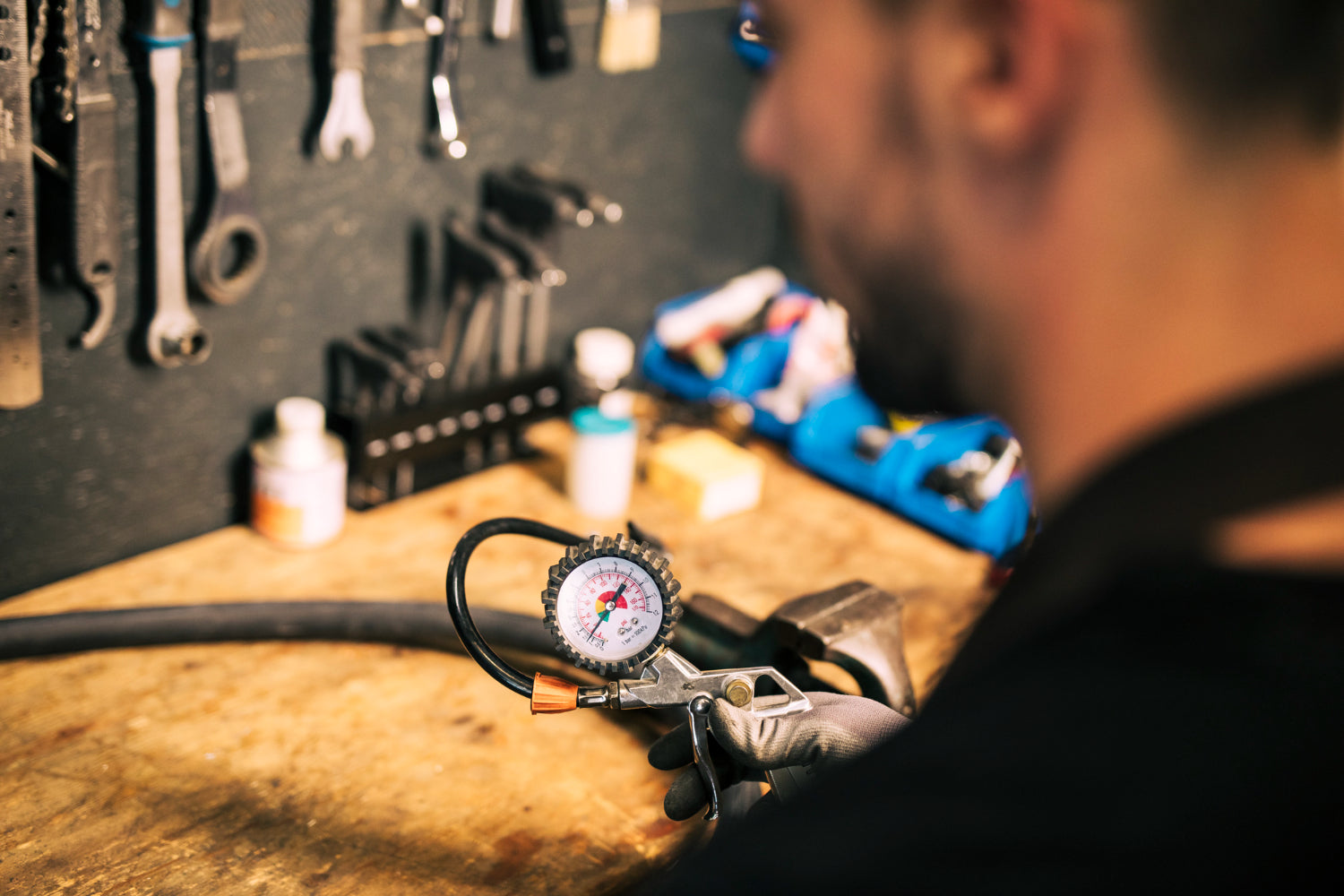
Maintaining Industrial Air Compressor Efficiency
Industrial air compressors do a lot of behind-the-scenes work. They're the muscle in most manufacturing plants, powering everything from hand tools to conveyor systems. But like any hard-working machine, they need attention to keep going strong. Without a good upkeep plan, even the most powerful system can start to slip by losing pressure, overheating, or wearing out way faster than it should.
Keeping things running smoothly isn’t just about fixing problems when they pop up. It’s about building habits that help avoid problems in the first place. By checking a few things regularly and staying ahead on replacements, you can stretch the life of your unit and avoid disruptions that slow production down.
Kickstarting Efficiency For Your Industrial Air Compressor
Efficiency doesn’t happen by accident. Compressors lose performance little by little when small issues go unnoticed. Oil levels drop, filters clog, or belts begin to wear. Each issue chips away at output and increases energy use, even if the machine still technically works.
One way to fix that is by treating maintenance as an ongoing process, not just a task saved for when something breaks. A well-cared-for air compressor should deliver reliable pressure, use less energy, and reduce strain on other equipment tied to its system. That’s not only easier on your budget, but also better for everyone working with or around it.
Think of it like keeping your car tuned up. If oil changes and filter swaps are skipped long enough, the engine pays the price. The same is true here. Even though industrial systems are built to last, they’re not immune to wear unless they're supported by simple, regular care. That begins by using the right parts that match the system's needs and being consistent about routine upkeep.
Regular Maintenance Routines
Jumping into maintenance doesn’t mean pulling out a manual every day. It’s more about staying aware of how things should sound, look, and operate. Here’s a helpful breakdown of daily, weekly, and scheduled tasks that make a big difference.
Daily Checks:
1. Listen for changes in sound. Clicking, hissing, or clunking might point to a loose or damaged part.
2. Look for oil or air leaks around fittings, hoses, and joints.
3. Monitor pressure levels. Sudden dips or climbs might be a warning sign.
Weekly Checks:
1. Inspect and clean air filters. A clogged filter makes the system work harder and can decrease airflow.
2. Drain condensation from tanks. Trapped moisture inside the system can lead to rust or other damage.
3. Check oil levels if using an oil-lubricated model. If it’s dropping more than usual, a deeper inspection may be needed.
Scheduled Inspections:
1. Plan professional inspections every few months. A trained technician can catch small issues before they grow.
2. Replace worn belts, valves, and filters as recommended by the manufacturer. Don’t wait until failure. Replacements at the right time can prevent more costly repairs.
When these checks become routine, problems feel less surprising. Small fixes caught early cost less, take less time, and prevent production delays. Maintenance doesn’t have to be complex, but it does need to be consistent. Over time, those little moments of care add up to a machine that runs longer and works better.
Optimal Operating Conditions
To keep your industrial air compressor performing at its best, make sure it operates in the right environment. This means managing temperature and humidity levels.
Compressors generate a lot of heat. Too much heat can lead to overheating, reduced power, or even breakdowns. Set up your compressor in a well-ventilated room or open area where heat can escape. Clean vents or fan systems at regular intervals to avoid dust buildup that can trap heat.
Humidity is another factor you don’t want to overlook. Moisture in the air can find its way into the system and cause corrosion, rust, or pressure problems. Earn some peace of mind by using an air dryer or placing a dehumidifier near the compressor. These tools help minimize the risk of moisture sneaking into the tanks and internal parts.
Beyond heat and humidity, you should consider general cleanliness around the compressor unit. Avoid setting up your system near dusty work zones or areas with harsh chemicals in the air. Try to keep the area around it clear of clutter so filters and systems have room to breathe. Following these steps protects your investment and keeps your compressor running as it should.
Importance of Quality Replacement Parts
Your compressor is only as reliable as the parts inside it. Using high-quality, OEM-equivalent components can make a big difference in overall performance and how well your system ages over time.
These parts are made to match the exact specifications of major compressor brands, which means smoother fit, less installation stress, and better performance. Lower-cost alternatives might look similar, but they often don’t hold up under pressure or high-temperature conditions. Once they start breaking down, they put strain on the whole system, which leads to higher energy bills and shorter equipment life.
Filters, belts, valves, and gaskets all play specific roles. When any one of them doesn’t function right, the whole system suffers. Investing in parts that meet or beat OEM standards helps prevent interruptions, increases airflow, and improves energy use.
Using solid parts not only helps avoid emergencies but improves your maintenance strategy overall. Every component works how it's supposed to. You stay ahead of issues and run fewer risks between inspections.
Partnering with a Reliable Industrial Air Compressor Manufacturer
Working with a trusted industrial air compressor manufacturer makes everything easier. You get equipment and advice you can count on, and that leads to smoother operation, better support, and fewer surprises.
It’s not just about the big machines. The ongoing support, product knowledge, and access to quality replacement parts matter too. You want someone who knows what fits, what lasts, and what works well under your conditions.
At Compressor Filter Hub, we offer a wide selection of OEM-equivalent parts that support many of the most trusted industrial systems in the field. Professionals rely on us for compatibility, availability, and peace of mind.
Our inventory includes filters, separators, oil cartridges, and other critical items made to work efficiently inside your setup. Whether you're dealing with an older unit or a newer model, we help keep things running smoothly with options built to match.
Ensuring Peak Performance All Year Round
Keeping your industrial air compressor performing at its best comes down to three things: regular checks, a controlled environment, and using dependable replacement parts.
By setting a strong maintenance schedule, staying ahead of wear and tear, and avoiding shortcuts with cheap components, you're more likely to avoid downtime and emergency repairs. Over time, your system pays you back with stronger output, stable energy use, and fewer problems.
Choosing the right environment and the right partners also helps. Every step you take adds strength to the system that powers your business. If you treat your equipment like something that needs good care, it will return the favor by sticking with you longer.
A steady, well-supported compressor means one less thing to worry about and one more part of your operation you can trust. Keep it strong by keeping it clean, cool, and stocked with reliable parts year-round.
Discover how Compressor Filter Hub can support your success as an industrial air compressor manufacturer. Our high-quality range of air filters and OEM-equivalent parts is designed to keep your systems operating efficiently and reliably throughout the year.
